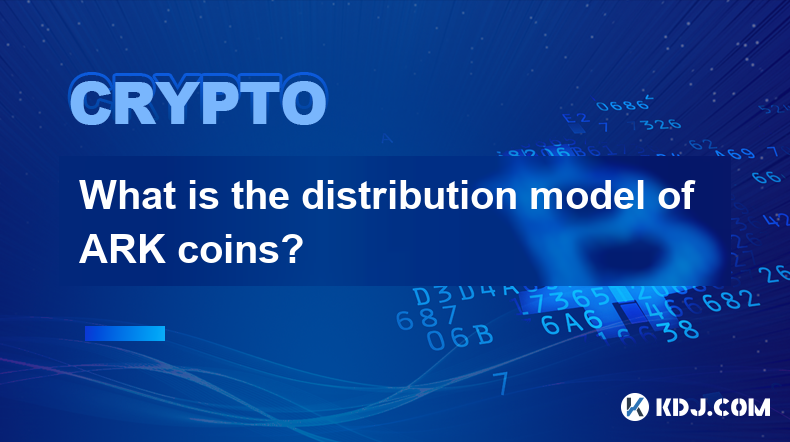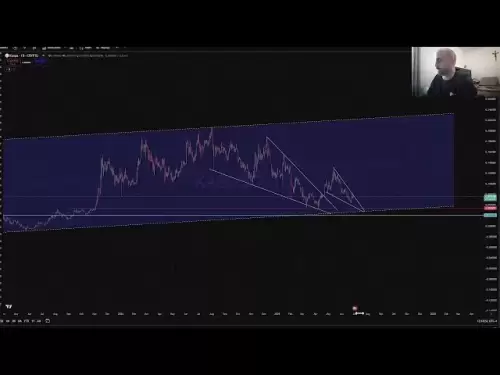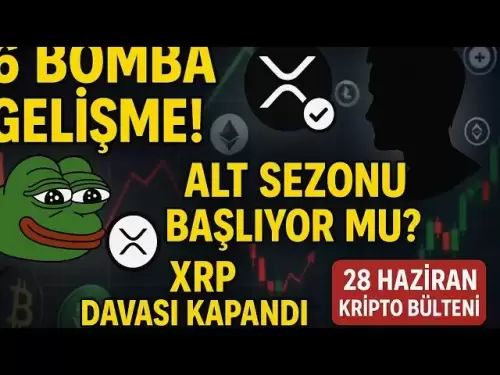-
 Bitcoin
Bitcoin $107,352.1067
0.28% -
 Ethereum
Ethereum $2,429.3531
-0.90% -
 Tether USDt
Tether USDt $1.0001
-0.02% -
 XRP
XRP $2.1894
4.62% -
 BNB
BNB $646.7968
0.36% -
 Solana
Solana $147.4290
4.03% -
 USDC
USDC $0.9998
-0.02% -
 TRON
TRON $0.2756
1.52% -
 Dogecoin
Dogecoin $0.1630
1.14% -
 Cardano
Cardano $0.5612
1.18% -
 Hyperliquid
Hyperliquid $37.0580
-0.05% -
 Bitcoin Cash
Bitcoin Cash $496.9410
-0.09% -
 Sui
Sui $2.7318
3.19% -
 Chainlink
Chainlink $13.1503
0.58% -
 UNUS SED LEO
UNUS SED LEO $9.0766
0.55% -
 Avalanche
Avalanche $17.7220
1.46% -
 Stellar
Stellar $0.2380
1.52% -
 Toncoin
Toncoin $2.8439
0.38% -
 Shiba Inu
Shiba Inu $0.0...01143
1.84% -
 Litecoin
Litecoin $85.8053
1.47% -
 Hedera
Hedera $0.1483
2.70% -
 Monero
Monero $314.3240
2.12% -
 Bitget Token
Bitget Token $4.6725
0.77% -
 Dai
Dai $1.0000
0.00% -
 Polkadot
Polkadot $3.3555
1.28% -
 Ethena USDe
Ethena USDe $1.0001
0.02% -
 Uniswap
Uniswap $7.0890
2.64% -
 Pi
Pi $0.5355
-3.40% -
 Pepe
Pepe $0.0...09393
1.06% -
 Aave
Aave $256.8136
-1.90%
What is the distribution model of ARK coins?
In the ARK Proof-of-Stake Voting (PoSV) model, holders participate in the election of 51 delegates who validate transactions, secure the network, and receive block rewards and transaction fees as incentives for active governance.
Dec 26, 2024 at 03:19 am

Key Points
- ARK utilizes a unique distribution model known as Proof-of-Stake Voting (PoSV) to ensure fair coin distribution and community governance.
- Holders of ARK coins participate in the voting process to elect delegates responsible for validating transactions and securing the network.
- The top 51 delegates receive transaction fees and block rewards, providing incentives for active participation and network governance.
Proof-of-Stake Voting (PoSV) Model
- Consensus Mechanism: PoSV replaces traditional Proof-of-Work (PoW) mining with a voting-based consensus mechanism.
- Holder Participation: ARK holders vote for delegates, who are responsible for securing the network and validating transactions.
- Consensus Building: Delegates achieve consensus on the validity of new transactions, which are then added to the blockchain.
Delegate Selection and Voting Process
- Voting Weight: Each ARK coin held gives its owner a certain voting weight.
- Delegate Nomination: Coin holders can nominate themselves or other ARK holders as delegates.
- Election Process: Holders then vote for their preferred delegates through a secure and transparent voting system.
- Top 51 Delegates: The top 51 delegates with the highest vote counts are elected to represent the network for a defined period.
Delegate Responsibilities and Rewards
- Transaction Validation: Elected delegates are responsible for validating transactions and adding them to the blockchain.
- Network Security: Delegates contribute to the overall security of the network by maintaining the consensus mechanism.
- Block Rewards: Delegates receive block rewards for validating transactions and maintaining the network.
- Transaction Fees: Delegates also receive a portion of the transaction fees generated by network activity.
Benefits of the ARK Distribution Model
- Fair Distribution: PoSV ensures a fair distribution of coins to holders based on their participation in the voting process.
- Community Governance: Holders have direct influence over network governance by electing delegates who align with their interests.
- Network Security: Delegates are incentivized to maintain network security through block rewards and transaction fees.
- Scalability: The voting-based consensus mechanism of PoSV allows for scalability as the network grows.
FAQs
Q: How often are delegates elected?
A: Delegates are elected every 60 days.
Q: What are the requirements to become a delegate?
A: Potential delegates must hold a minimum of 50,000 ARK and maintain a reliable internet connection.
Q: Can I participate in the voting process without holding any ARK coins?
A: No, voting rights are only granted to holders of ARK coins.
Q: How much do delegates earn?
A: Delegates receive a portion of the transaction fees and block rewards generated on the network.
Q: Is the voting process secure?
A: The voting process is secured using cryptography and a transparent voting system.
Disclaimer:info@kdj.com
The information provided is not trading advice. kdj.com does not assume any responsibility for any investments made based on the information provided in this article. Cryptocurrencies are highly volatile and it is highly recommended that you invest with caution after thorough research!
If you believe that the content used on this website infringes your copyright, please contact us immediately (info@kdj.com) and we will delete it promptly.
- RUVI Token Soars: Can It Eclipse Cardano's Forecast?
- 2025-06-29 02:30:12
- Meme Coin Mania: Can Little Pepe Outshine Shiba Inu and Dogecoin?
- 2025-06-29 02:30:12
- XRP Tokens: Navigating Financial Status and the Art of Buying In
- 2025-06-29 02:50:12
- Transparent Fees, Trading Power, No Surprises: LeveX's Honest Approach
- 2025-06-29 02:50:12
- DAO Price, Total Value Locked, and All-Time Highs: What's Driving the DeFi Surge?
- 2025-06-29 03:21:18
- BlockDAG, Polygon, Render, and Polkadot: Navigating the Altcoin Landscape in NYC Style
- 2025-06-29 03:21:18
Related knowledge

How to customize USDT TRC20 mining fees? Flexible adjustment tutorial
Jun 13,2025 at 01:42am
Understanding USDT TRC20 Mining FeesMining fees on the TRON (TRC20) network are essential for processing transactions. Unlike Bitcoin or Ethereum, where miners directly validate transactions, TRON uses a delegated proof-of-stake (DPoS) mechanism. However, users still need to pay bandwidth and energy fees, which are collectively referred to as 'mining fe...

USDT TRC20 transaction is stuck? Solution summary
Jun 14,2025 at 11:15pm
Understanding USDT TRC20 TransactionsWhen users mention that a USDT TRC20 transaction is stuck, they typically refer to a situation where the transfer of Tether (USDT) on the TRON blockchain has not been confirmed for an extended period. This issue may arise due to various reasons such as network congestion, insufficient transaction fees, or wallet-rela...

How to cancel USDT TRC20 unconfirmed transactions? Operation guide
Jun 13,2025 at 11:01pm
Understanding USDT TRC20 Unconfirmed TransactionsWhen dealing with USDT TRC20 transactions, it’s crucial to understand what an unconfirmed transaction means. An unconfirmed transaction is one that has been broadcasted to the blockchain network but hasn’t yet been included in a block. This typically occurs due to low transaction fees or network congestio...

How to check USDT TRC20 balance? Introduction to multiple query methods
Jun 21,2025 at 02:42am
Understanding USDT TRC20 and Its ImportanceUSDT (Tether) is one of the most widely used stablecoins in the cryptocurrency market. It exists on multiple blockchain networks, including TRC20, which operates on the Tron (TRX) network. Checking your USDT TRC20 balance accurately is crucial for users who hold or transact with this asset. Whether you're sendi...

What to do if USDT TRC20 transfers are congested? Speed up trading skills
Jun 13,2025 at 09:56am
Understanding USDT TRC20 Transfer CongestionWhen transferring USDT TRC20, users may occasionally experience delays or congestion. This typically occurs due to network overload on the TRON blockchain, which hosts the TRC20 version of Tether. Unlike the ERC20 variant (which runs on Ethereum), TRC20 transactions are generally faster and cheaper, but during...

The relationship between USDT TRC20 and TRON chain: technical background analysis
Jun 12,2025 at 01:28pm
What is USDT TRC20?USDT TRC20 refers to the Tether (USDT) token issued on the TRON blockchain using the TRC-20 standard. Unlike the more commonly known ERC-20 version of USDT (which runs on Ethereum), the TRC-20 variant leverages the TRON network's infrastructure for faster and cheaper transactions. The emergence of this version came as part of Tether’s...

How to customize USDT TRC20 mining fees? Flexible adjustment tutorial
Jun 13,2025 at 01:42am
Understanding USDT TRC20 Mining FeesMining fees on the TRON (TRC20) network are essential for processing transactions. Unlike Bitcoin or Ethereum, where miners directly validate transactions, TRON uses a delegated proof-of-stake (DPoS) mechanism. However, users still need to pay bandwidth and energy fees, which are collectively referred to as 'mining fe...

USDT TRC20 transaction is stuck? Solution summary
Jun 14,2025 at 11:15pm
Understanding USDT TRC20 TransactionsWhen users mention that a USDT TRC20 transaction is stuck, they typically refer to a situation where the transfer of Tether (USDT) on the TRON blockchain has not been confirmed for an extended period. This issue may arise due to various reasons such as network congestion, insufficient transaction fees, or wallet-rela...

How to cancel USDT TRC20 unconfirmed transactions? Operation guide
Jun 13,2025 at 11:01pm
Understanding USDT TRC20 Unconfirmed TransactionsWhen dealing with USDT TRC20 transactions, it’s crucial to understand what an unconfirmed transaction means. An unconfirmed transaction is one that has been broadcasted to the blockchain network but hasn’t yet been included in a block. This typically occurs due to low transaction fees or network congestio...

How to check USDT TRC20 balance? Introduction to multiple query methods
Jun 21,2025 at 02:42am
Understanding USDT TRC20 and Its ImportanceUSDT (Tether) is one of the most widely used stablecoins in the cryptocurrency market. It exists on multiple blockchain networks, including TRC20, which operates on the Tron (TRX) network. Checking your USDT TRC20 balance accurately is crucial for users who hold or transact with this asset. Whether you're sendi...

What to do if USDT TRC20 transfers are congested? Speed up trading skills
Jun 13,2025 at 09:56am
Understanding USDT TRC20 Transfer CongestionWhen transferring USDT TRC20, users may occasionally experience delays or congestion. This typically occurs due to network overload on the TRON blockchain, which hosts the TRC20 version of Tether. Unlike the ERC20 variant (which runs on Ethereum), TRC20 transactions are generally faster and cheaper, but during...

The relationship between USDT TRC20 and TRON chain: technical background analysis
Jun 12,2025 at 01:28pm
What is USDT TRC20?USDT TRC20 refers to the Tether (USDT) token issued on the TRON blockchain using the TRC-20 standard. Unlike the more commonly known ERC-20 version of USDT (which runs on Ethereum), the TRC-20 variant leverages the TRON network's infrastructure for faster and cheaper transactions. The emergence of this version came as part of Tether’s...
See all articles

























































































